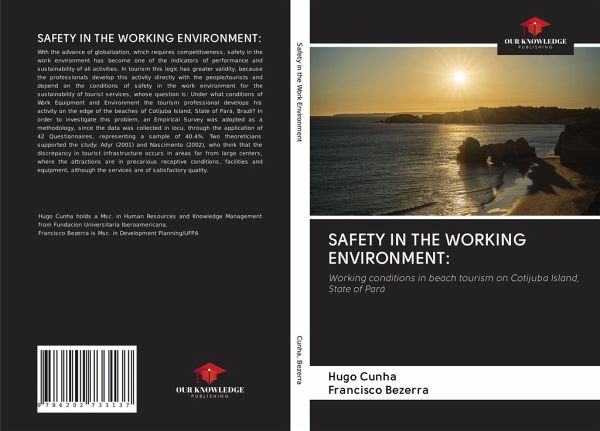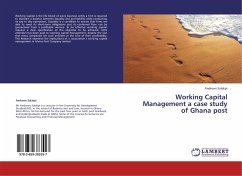
SAFETY IN THE WORKING ENVIRONMENT:
Working conditions in beach tourism on Cotijuba Island, State of Pará
Versandkostenfrei!
Versandfertig in 1-2 Wochen
32,99 €
inkl. MwSt.

PAYBACK Punkte
16 °P sammeln!
With the advance of globalization, which requires competitiveness, safety in the work environment has become one of the indicators of performance and sustainability of all activities. In tourism this logic has greater validity, because the professionals develop this activity directly with the people/tourists and depend on the conditions of safety in the work environment for the sustainability of tourist services, whose question is: Under what conditions of Work Equipment and Environment the tourism professional develops his activity on the edge of the beaches of Cotijuba Island, State of Pará...
With the advance of globalization, which requires competitiveness, safety in the work environment has become one of the indicators of performance and sustainability of all activities. In tourism this logic has greater validity, because the professionals develop this activity directly with the people/tourists and depend on the conditions of safety in the work environment for the sustainability of tourist services, whose question is: Under what conditions of Work Equipment and Environment the tourism professional develops his activity on the edge of the beaches of Cotijuba Island, State of Pará, Brazil? In order to investigate this problem, an Empirical Survey was adopted as a methodology, since the data was collected in locu, through the application of 42 Questionnaires, representing a sample of 40.4%. Two theoreticians supported the study: Adyr (2001) and Nascimento (2002), who think that the discrepancy in tourist infrastructure occurs in areas far from large centers, where the attractions are in precarious receptive conditions, facilities and equipment, although the services are of satisfactory quality.












